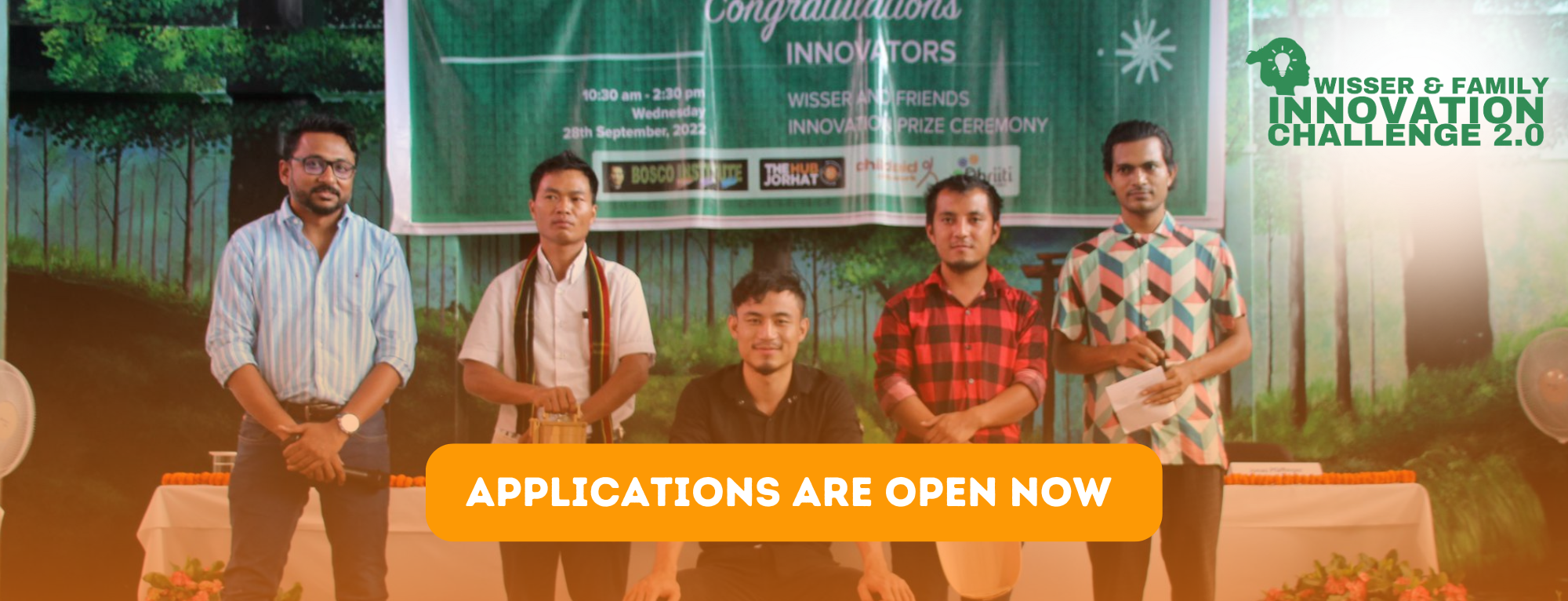
Wisser & Family Innovation Challenge – 2.0
WISSER & Family innovation challenge is an effort by Bosco Institute, Jorhat as a response to the untapped potential of Northeast India and to generate livelihood for local artisans through an entrepreneurial approach.
The focus is on such artisans/innovators either working on it or have the thrust to do so. By empowering artisans with innovative design solutions and entrepreneurial opportunities, the project aims to drive gender-inclusive growth in the region. This would not only enhance the income of local artisans but also contribute to the region’s overall economic development.
Who can apply?
Artisans/entrepreneurs/designers/innovators teams, led by a person from the Northeast region, and having at least one more team member from the region that would design and develop innovative solutions for livelihood-generation.
Age Group: Below 40 years.
Design Materials
Two categories of natural waste materials are opened
- Category 1: Plant – based (Cotton, Jute, Husk, Banana stem, Hay, Water hyacinth, Lotus fibres, Pineapple leaves fibres, Sisal fibres, Coconut fibres/Coir, Sital Pati, Kauna Grass (water reed), Kenaf fibres, Hemp fibres, Nettle fibres, Fruit and vegetable skin, Areca leaf sheath, Sal and teak leaves, etc.)
- Category 2: Animal – based (Wool, remains of silk cocoon (after abstraction of silk) Eri/Muga, Fish skin & scales etc.)
Team Composition
- Participants can be of maximum of 3 members and minimum of 2 members.
- Should have at least 1 member in the team as a resident from the North east region.
Solution Eligibility
- The product design/innovation should have the potential to create livelihood opportunity for local artisans and can be scaled into development projects for micro or Nano entrepreneurs from the North East Region.
Innovation Grant
- The top 3 best innovation will receive grants for prototype building.
- Innovation grants for the winner of the challenge will receive INR 2,30,000. The second and third innovation will receive INR 1,80,000 and INR 1,30,000 respectively.
- All selections will be done by eminent judges to decide the results.
Why this Challenge?
The challenge would identify top 3 innovations that could be further taken up by the innovators for marketing as in furthering the development of proto-type as a full-fledged solution that benefits the local artisans or, to facilitate the transfer of knowledge to local artisans to enable a transformative change in their livelihood generation. Overall, the design challenge is an opportunity for participants to impact by catapulting value-added product design to a high potential, low capital investment sector and transforming the local economy.
For further assistance, please contact
Phone: +91-9957343791 | Email: hubcreatives@boscoinstitute.org
You can submit your application through email by downloading the application form.
Last date to apply: 28th February 2025
Wisser Innovation 1.0




